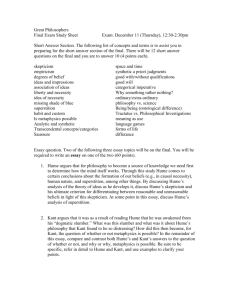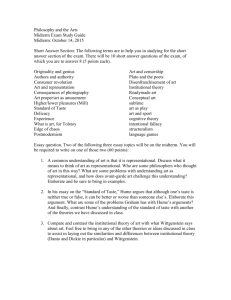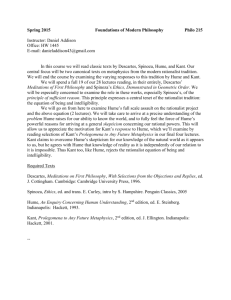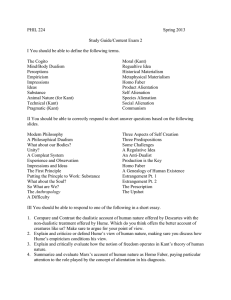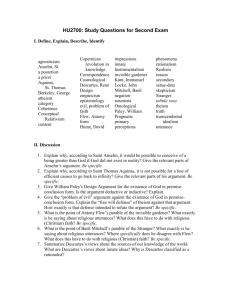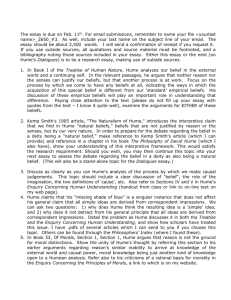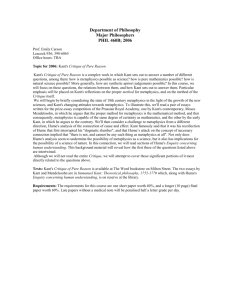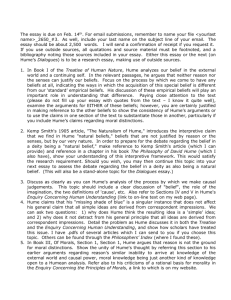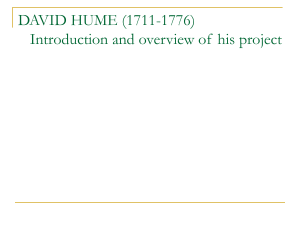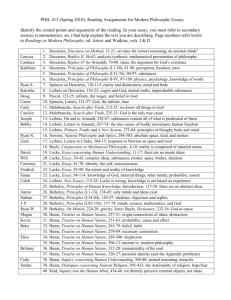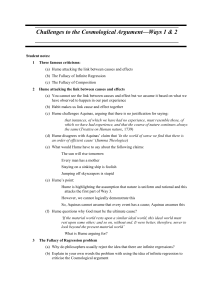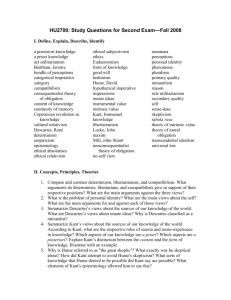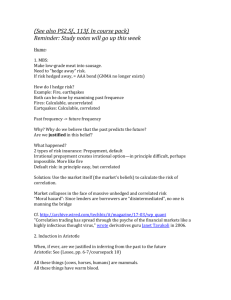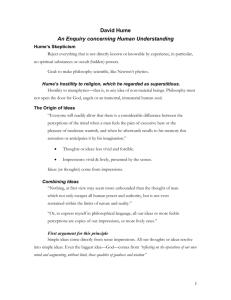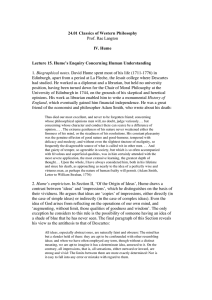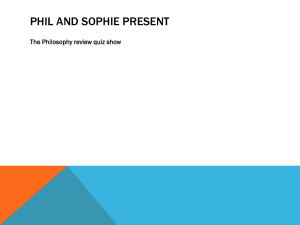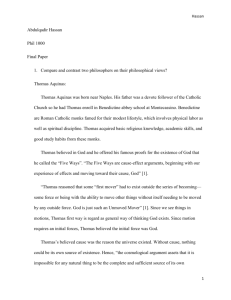Great Philosophers Final Exam Study Sheet Exam: May 15
advertisement
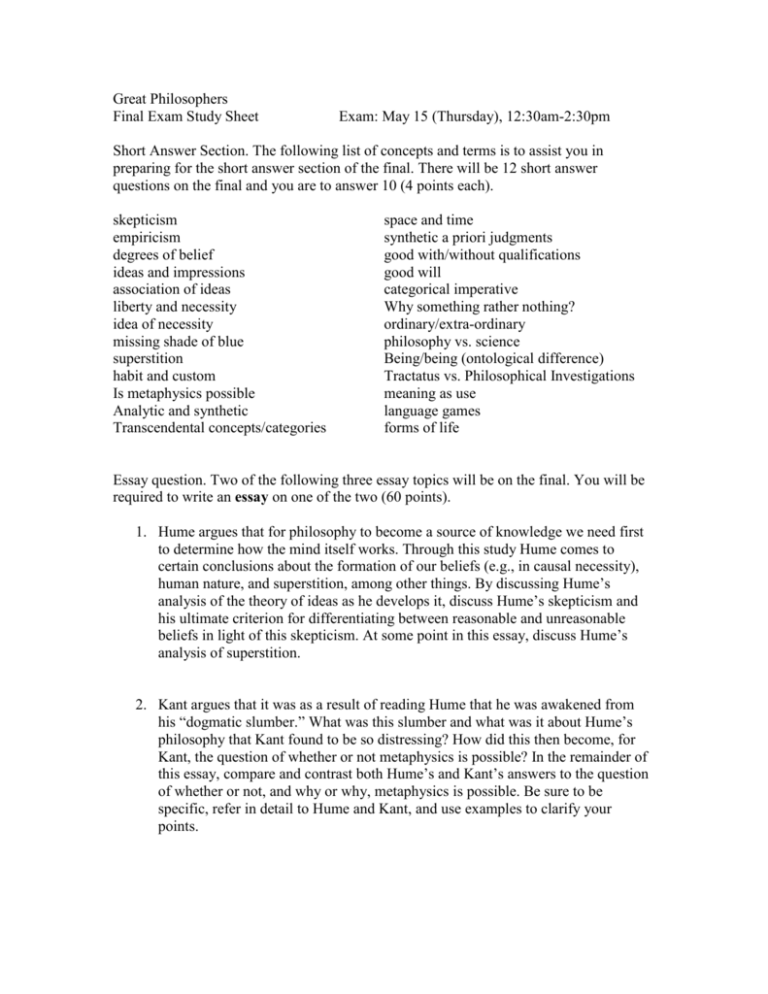
Great Philosophers Final Exam Study Sheet Exam: May 15 (Thursday), 12:30am-2:30pm Short Answer Section. The following list of concepts and terms is to assist you in preparing for the short answer section of the final. There will be 12 short answer questions on the final and you are to answer 10 (4 points each). skepticism empiricism degrees of belief ideas and impressions association of ideas liberty and necessity idea of necessity missing shade of blue superstition habit and custom Is metaphysics possible Analytic and synthetic Transcendental concepts/categories space and time synthetic a priori judgments good with/without qualifications good will categorical imperative Why something rather nothing? ordinary/extra-ordinary philosophy vs. science Being/being (ontological difference) Tractatus vs. Philosophical Investigations meaning as use language games forms of life Essay question. Two of the following three essay topics will be on the final. You will be required to write an essay on one of the two (60 points). 1. Hume argues that for philosophy to become a source of knowledge we need first to determine how the mind itself works. Through this study Hume comes to certain conclusions about the formation of our beliefs (e.g., in causal necessity), human nature, and superstition, among other things. By discussing Hume’s analysis of the theory of ideas as he develops it, discuss Hume’s skepticism and his ultimate criterion for differentiating between reasonable and unreasonable beliefs in light of this skepticism. At some point in this essay, discuss Hume’s analysis of superstition. 2. Kant argues that it was as a result of reading Hume that he was awakened from his “dogmatic slumber.” What was this slumber and what was it about Hume’s philosophy that Kant found to be so distressing? How did this then become, for Kant, the question of whether or not metaphysics is possible? In the remainder of this essay, compare and contrast both Hume’s and Kant’s answers to the question of whether or not, and why or why, metaphysics is possible. Be sure to be specific, refer in detail to Hume and Kant, and use examples to clarify your points. 3. Heidegger and Wittgenstein are both noted for the importance they place on language and the relationship between language and philosophy. In the case of Heidegger, for instance, poetry gets us closer to Being and Wittgenstein’s views shifted from what he wrote in the Tractatus to the conclusions he reached in the Philosophical Investigations. Discuss the relationship between language and philosophy as found in Heidegger and Wittgenstein in more detail.
